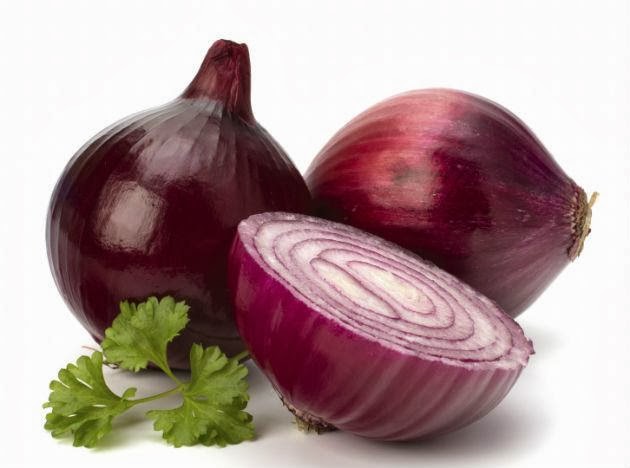Whether you're mingling at a holiday cocktail party,
indulging in a southern Bayou-style barbeque, or dining at your favorite
seafood restaurant, shrimp are likely on the menu. In fact, Americans
eat more shrimp than any other type of seafood by weight. There's just
one problem with that: "Shrimp is one of the most -- if not
the most -- damaging fisheries around," says Andy Sharpless, CEO of Oceana,
the world's largest conservation group focused solely on oceans.
In his new book,
The Perfect Protein,
Sharpless lays out a plan to create healthier oceans -- and people --
by just saying "no" to shrimp. These unappetizing incentives will help
you rethink putting America's favorite shellfish on your plate. (Not all
fish are healthy. Here are 12 Fish You Should Never, Ever Eat.)
Shrimp farms are breeding grounds for bacteria and viruses.
The
U.S. imports more than 90% of the shrimp we eat -- 1.3 billion pounds
in 2011 alone. Much of this shrimp comes from farms in Vietnam,
Bangladesh, and Thailand, where shallow pools are often overloaded with
shrimp, paving the way for nasty diseases that can destroy entire
colonies. And get this: Only 2% of all imported seafood is tested by the
Food and Drug Administration.
Better seafood selection: Farmed oysters. They're one of the most sustainable seafood choices out
there, actually help clean oceans, and contain trace minerals like zinc
that can bolster your immune system. Oysters are filter feeders, so
they actually make cleaner water on their own -- even when they're
farmed. (Learn the difference between farmed and wild shrimp, and the
safest sources.)
5 Fast-Food Diets: Are They Safe?
Some shrimp is loaded with chemicals.
Shrimp Shocker: With shrimp densely packed in shallow ponds, overseas aquatic farmers
often dose them with high levels of antibiotics and pesticides --
including ones currently banned for use in the United States. In fact,
investigations have turned up carcinogenic antibiotics like
nitrofuranzone in shrimp at levels nearly 30 times higher than those
allowed in food by the FDA. (Did you know that sugar can rival the
toxicity found in imported seafood? Learn where sneaky sugar hides, along with its surprising sugar side effects.)
And you can't count on the government to keep these toxic shrimp out of
U.S. grocery stores: According to a 2011 Government Accountability
Office report, the FDA tested just 0.1% of imported seafood for chemical
residues.
Better seafood selection: Domestic
farmed clams. Because they are relatively young when harvested, they
tend to avoid accumulating high levels of contaminants like older fish
do, Sharpless says. And U.S. aquaculture regulations are more stringent
than those of common shrimp farming countries.
Shrimp farming contributes to global warming.
Shrimp Shocker: Over the past 50 years, anywhere from 5 to 80% of the mangrove forests
in Thailand, Ecuador, Indonesia, China, Mexico, and Vietnam (the five
leading shrimp-farming countries) have been destroyed to make room for
more coastal shrimp farms. Scientists from the U.S. Department of
Agriculture have found that mangrove forests absorb and trap more
climate-changing carbon dioxide than any other ecosystem on the planet,
including rainforests. Mangroves also serve as nursery areas for other
ocean creatures, and they help keep coasts secure by reducing flooding
during storms.
Better seafood selection: Wild-caught Alaskan salmon. It's easier on the environment than farmed
fish, low in contaminants, and loaded with brain- and heart-protecting
omega-3 fatty acids. (Even if you think you're eating cruelty-free, you
might not be. Explore how the food we eat really gets from farm to plate.)
The Best Seafood to Eat
Shrimp farms destroy local fishing economies.
Shrimp Shocker: After turning the tropical mangroves into polluted wasteland, shrimp
farmers often abandon the industrial ponds and move on to cut down more
mangrove forests for a fresh start. They leave behind pollution that not
only degrades the environment, but also the prospects for artisanal
fishermen.
Better seafood selection: Mussels.
They're sustainably harvested, and are loaded with some of the highest
naturally occurring levels of brain-protecting vitamin B12 on the
planet. They also contain tract nutrients that help balance your mood,
including zinc, iodine, and selenium.
Wild-caught shrimp harvesting is extremely wasteful.
Farmed
shrimp have their problems, but wild-caught shrimp aren't always a much
better alternative. Fisherman catch wild shrimp using fine-meshed trawl
nets pulled through the water. Worldwide, for one pound of shrimp,
there can be 5 pounds of bycatch -- other species that become trapped in
the nets. Even here in the United States, Sharpless says 76% of marine
life in the nets brought onboard during shrimp harvesting is not shrimp.
"Most fish are damaged from being in the net, and many are discarded --
dead or dying -- overboard," he says. Nets routinely pull up 9,000
endangered or threatened sea turtles annually, in addition to sharks,
red snappers, and other animals.
Better seafood selection: Sardines and anchovies. These small fish are generally caught without
using destructive bottom trawling methods that can destroy centuries-old
seafloor communities (and the livelihood of local fishing industries),
Sharpless says.
If you must eat shrimp, buy shrimp harvested in
the United States, since U.S. regulations tend to be stricter than those
of common overseas shrimp farming countries. (Green up your life with these simple, painless ways to help out the environment.
Bonus: you'll save money too.)





































